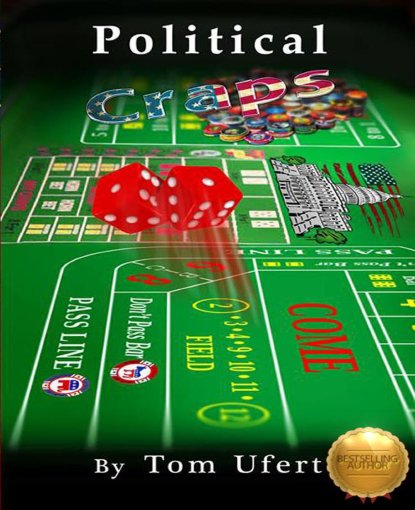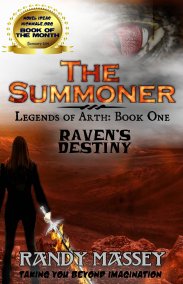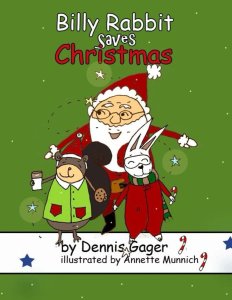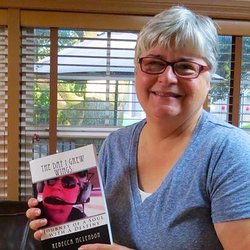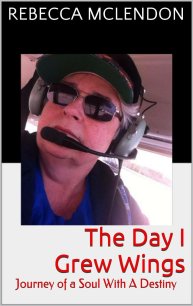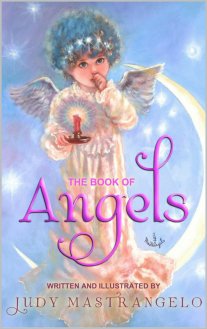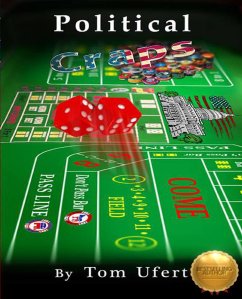
What was the hardest part of writing this book?
I would have to say the hardest task was keeping up with the rapidly changing nature of the specific issues that Political Craps addresses. In many ways this fact perfectly illustrates the ongoing frustration most citizens have with politics today—they can’t keep up with the rapid pace of change. Compounding that frustration is the deluge of conflicting information literally drowning them to the point of overwhelming apathy. While writing the manuscript and attempting to follow a carefully crafted outline, I found myself scrambling to re-research topics that seemed to transform on a daily basis. In fact, there were some articles and reports that had to be reviewed and inserted into the final draft within days of the finished product. In the end I was forced to set a firm deadline after which no new material would be included. Otherwise, I’d still be writing the book!
What did you enjoy most about writing this book?
After three decades of being politically involved, it was a distinct pleasure to utilize my past experience as a primer for helping others sort through all the “crap” that so often clouds the reality of politics. For most people, trying to sift through all the smoke and mirrors is a tedious and often disillusioning process. Even after scratching the minutest surface of the world of politics, most people become so disgusted that they lose faith in the noble ideals of our democracy and wind up convinced that their trust in the whole system could never be restored. Furthermore, that loss of faith results in an apathetic conclusion that as citizens their individual vote is meaningless. Writing Political Craps re-instilled my profound belief in two intrinsic values: One, the pen is mightier than the sword and two, individuals can make a difference. For me personally, and I pray that the book inspires this attitude, failure to hold these beliefs inviolate means being an American is a naive act of hopeless futility. THAT IS SOMETHING I CAN NEVER ACCEPT!
Are there vocabulary words or concepts in your book that may be new to readers? Define some of those.
I cannot deny that there are some “25 cent words” within the text. I make no apology for using them and in fact, wrote in the manuscript the phrase (go look it up) anticipating a common unfamiliarity with the vocabulary. My intention was not to insult anyone or act intellectually superior. On the contrary, my goal was to educate my readers by forcing them to actually look up the definition so they would broaden their minds and become familiar with terms politically commonplace. In the end, information is power. Leaders at times will talk above people’s heads to confuse them and put themselves on pedestals of self-importance. Only when people are educated can they tell the difference between fact and BS! My attitude is that everyone should strive for self-improvement for the day we stop learning is the day we die. For specific political terms or acronyms associated with government institutions I have included a glossary in the back of the book. Some of the “25 cent word” examples include:
– Obfuscate – “render obscure, unclear, or unintelligible.”
– Inclinations – “a person’s natural tendency or urge to act or feel in a particular way; a disposition or propensity.”
Are there underrepresented groups or ideas featured if your book? If so, discuss them.
I’m sure that some of the groups or individuals I refer to may seem unfamiliar or underrepresented for the average person who is not politically informed or motivated. That’s a given. Today’s 30 second sound byte world tends to utilize or publicize the most commonly recognizable figures so as to meet their primary demographic audience’s limited attention span. Risking pissing people off, I’m going to say it—we’ve become lazy and adamantly comfortable with being mediocre. Getting Informed Getting Involved (#GIGI) takes work and requires a modicum (yes, go look it up!) of effort! Nothing worth having comes easy. Therefore, I went to great lengths in Political Craps to seek out a multitude of atypical (okay, go look it up too if you have to) resources and differing opinions so that a balanced and unpartisan perspective could be provided. For example the book makes use of several references from groups like OpenSecrets.org, PublicCitizen.org, and PublicCampaign.org because these organizations are independently non-partisan that take transparency and public information standards seriously. Political Craps was intentionally derived totally from the internet to emphasize that all of this information is available for public consumption if people would just get off their butts and go find it.
Are there misconceptions that people have about your book? If so, explain.
Yeah, I think so. People immediately assume that as a political activist I have a partisan agenda to advance. WRONG! Having worked on both sides of the aisle for each political party as well as having been both a Democrat and Republican myself, I assert pros and cons for each of them. Furthermore, I have no biased hesitation about holding each of them accountable as should all Americans! Perhaps another misconception is that my book is written only for those select few who are interested in politics. WRONG AGAIN! I intentionally wrote Political Craps to reach those who are not traditionally interested in politics…hence the title. Every page is meant to enlighten and inspire average Americans who are not blessed with my former insider insight. The book is primarily intended to crack the door to what is really going on behind the veneer of American politics.
What is the biggest thing that people THINK they know about your subject/genre, that isn’t so?
Politics only affects those that are involved in it. WRONG! Politics affects everyone from children dependent on state insurance plans, to students relying on teachers and schools to provide them with a good education, to working adults trying to earn enough to make ends meet, to all citizens seeking service and protection from their local police and fire departments, to every American wanting protection from terrorism or Ebola. Your elected representatives—local, state and federal—all make the laws and regulations that directly impact your lives. Failure to be active participants, or at the bare minimum even vote on Election Day, means that people are blindly trusting public servants in power to do what’s best for you without holding them accountable. Talk about blind stupidity! The 113th Congress is a prime example of what happens when the people don’t demand politicians do what they’re hired for—“the do nothing congress!”
What is the most important thing that people DON’T know about your subject/genre, that they need to know?
Not every book on politics is boring and filled with useless information. As many of the 5 Star reviews on Political Craps testify, this book is a great read and actually entertaining. I’ll let them speak for themselves…
– “Great Writing, Great Premise AND Kept Me Awake!”
– “This is a great book.”
– “This book should be in the top ten to preview, listen, read, and issue as a summer reading assignment in all families.”
– “’Political Craps’ by Tom Ufert is one of the most interesting political tomes of modern times.”
– “Being naive in political jargon has completely baffled me, but Mr. Ufert’s book expresses his thoughts and views very clearly to the average layman.”
What inspires you?
Service to a greater good is what inspires me. Naturally I’m moved by uplifting music, art and literature. However, stories of people overcoming great challenges, not wallowing in self-pity, and giving back to improve the world around them display the nobility of man and go a long way to dispelling the sometimes overpowering darkness of human character. As a species we are capable of such beauty, creativity and accomplishment. Yet we are also the harbingers of grotesque evil, destruction and barbarity. This dichotomy of the human soul is a constant tug of war and when even a small shred of light is ignited to sear through the darkness it is a crescendo of magnificence that deserves recognition. In this country the ability of one person to make a difference and pursue a life of purpose knows no bounds…THAT’S WHAT INSPIRES ME.
How did you get to be where you are in your life today?
LOTS OF HELP! There are so many people who have really helped shape my life and along with plenty of prayer/self-reflection I’ve managed to make it this far. Probably not what most people would expect to hear, but plenty of mistakes along the way have helped me learn and find the right path. Life is an ever twisting turning journey but I can honestly say mine has been truly blessed. After an endless barrage of adversities, including three life changing disabilities, I’m still hear and “rolling” strong. Music and humour serve to make life bearable. I was struck by recently deceased icon Joan Rivers’ quotation “If you can laugh at it, you can live with it!” Laughing in the face of tribulation helps one keep a positive attitude. Having friends and loved ones who sincerely believe in you girds one for the inevitable struggles against doubt and hopelessness. I thank God that the village of people in my life is diverse, colourful, solid and showers me with unconditional love.
Who are some of your favorite authors that you feel were influential in your work? What impact have they had on your writing?
Harper Lee, F. Scott Fitzgerald, Robert Frost, Jack London, J.D. Salinger, Voltaire, Charles Dickens, Sir Arthur Conan Doyle, Shakespeare, Dr. Martin Luther King, John Grisham, Benjamin Franklin, Thomas Jefferson, John Grisham, James Patterson, and Patricia Cornwell are the names that first come to mind. Each in their own way has left lasting impressions whether it be through their style, subject matter, use of language or simple inspiration from their words. I’m deeply grateful for the breadth of knowledge imparted to me from my educators over the years that have instilled a love for the written word and its intrinsic power. That diversity has greatly influenced not only my literary skills but my prowess as a confident public speaker.
What did you find most useful in learning to write? What was least useful or most destructive?
The most useful notion I gained from writing was the God given talent to reach the heart and souls of others through the written word. I’m most fortuitous that today’s expansive technology driven world has offered greater opportunities for aspiring writers like myself to soar and become reputable literary figures. I’ll grant you it’s not been easy or even profitable. Yet it has granted me a meaningful outlet to continue making a difference at a time in my life when physical challenges have limited my ability to be on the front lines of political or social change. There is no doubt that, like so many professions today, I’ve had to deal with profiteering scoundrels and two-faced sycophants that will offer you seemingly genuine praise to your face while plotting behind your back to rob you blind or assassinate your character. Furthermore, the rapidly changing publishing industry is pockmarked with deceptive practices or tactics that demand diligent research and an almost cold wariness so as to protect your talents and reputation. In many ways, becoming a full time writer has taught me so much about the law, business, marketing, merchandising, and human psychology.
Are you a full-time or part-time writer? How does that affect your writing?
I would have to say that I’m a full-time writer part of the time and a full-time public relations marketer the rest of the time. My physical challenges frequently cause the need to have breaks from a regular occupational routine. This has prevented me from working a regular 9-5 job for a number of years. Though this situation is financially straining it does seem to be quite conducive to my new found writing endeavors. I can work at my own pace and set my own hours. While this is beneficial to my particular approach to writing, the marketing and promotional requirements of a contemporary writing career are quite another matter entirely. In fact, like so many fellow writers I’ve communicated with, the PR aspect of writing tends to interfere with a regular writing regimen. It has taken quite some time for me to discover that blogging, my new weekly radio program and numerous other side ventures like these interview questions can offer a beneficial honing of one’s writing skills. Nonetheless, if one could afford a full-time literary agent to handle the mundane chores of marketing and media relations producing more than one book a year might be possible. I am blessed however, to have a dedicated support group of creative professionals as represented in both my marketing and publishing teams that ease my workload.
What are some day jobs that you have held? If any of them impacted your writing, share an example.
For most of my adult life I’ve held positions that dealt directly with the public in various fields and capacities. All through college I worked as a “car hop” for a high end dry cleaner; then served as an assistant food and beverage manager for an airport hotel. In 1992 the development of my physical challenges forced me into several customer service positions within the insurance, pharmaceutical and home security industries. All of these helped me acquire a unique appreciation for handling problems for the general public, inter-personal communications, and a multitude of corporate organizational skills that required multi-tasking, community affairs, event planning, employee relations and even management responsibilities. In addition my extracurricular activities with political campaigning, charity fundraising and service on three different 501(c)3 boards of directors required creative writing for grants, volunteer drives and media relations. It is fair to say that all combined these occupational experiences have served me well to provide a well-rounded resume that has assisted my present writing vocation.
For those interested in exploring the subject or theme of your book, where should they start?
My suggestion would be to peruse my numerous political essays on Amazon.com, website blog posts at http://www.tomufert.com or follow my social media outreach on Facebook, Twitter, Google+, LinkedIn, Pinterest, YouTube and WordPress. In the last three years I’ve been fortunate to acquire a sizeable social media footprint. Interested parties need only go to their preferred search engine and type in Tom Ufert and they’ll find a vast assortment of information on what I’m all about.
How do you feel about ebooks vs. print books and alternative vs. conventional publishing?
To be perfectly honest, I’m really “old school” preferring the tactile satisfaction of holding, feeling and smelling a print version of books. However, practically speaking we live an electronic technology world where a growing majority of people want the easy access of Ebooks. They provide a convenience in space saving, are ecologically responsible, and an almost immediate gratification of purchase, collection and discard. As for alternative vs. conventional publishing, transparency requires my confessed bias towards alternative—that has been my only successful means of publishing from the start. The rather heady and arguably discriminatory “old boys club” approach of conventional publishing has traditionally frowned upon those writers who either couldn’t afford their stilted methodologies or chose rather to buck the system. One only has to take a brief look at the present economic trends to see how rapidly conventional publishing seems to be antiquated in the face of modern internet technology. In fact there’s not a single major publishing corporation that hasn’t seen the future and started their own alternative subsidiary.
What do you think is the future of reading/writing?
Regrettably it’s all electronic. I guess that’s just the lamentations of someone from a passing generation that values beyond measure a “real book.” Yes, I still remember the old days of pencils and erasers, hand held dictionaries, typewriters and the thrill when white out was invented! Who knows, maybe someday my book collection may actually be worth some coin…we do still use coins don’t we? LOL!
What process did you go through to get your book published?
Though I was thoroughly impressed with the editing process of my original publisher and the proposed marketing approach within the industry, their nickel and dime fee structure for literally every promotional service was disillusioning. Therefore, I spent months reviewing new prospects. I read articles/customer reviews and expert evaluations as well as spoke personally with sales representatives from several major firms. In the end, recommendations from respected fellow authors were the key factors that brought me to Titan Inkorp. What impressed me the most was the fact that the company was founded by an author who approached publishing from the writer’s perspective. Their fee structure was reasonably affordable, person to person customer service was stressed and they worked diligently on extensive creative marketing. Their personal touch was deeply reassuring and created confidence that the company was directly invested in my book’s success. The manuscript went through three different editors and was approved. Skype conference calls with staff members on three continents successfully drafted marketing protocols involving ad banners, social media posts, proper key word assignment and strategic categorization convinced me I had found the right fit. I’ve been completely satisfied ever since.
What makes your book stand out from the crowd?
As I’ve said before, this deeply researched book was written for the average person who is relatively ignorant of the inner workings of the political process. It’s been described as “an excellent primer” for the politically disengaged. Additionally, its tonal theme is inspirational hopefully stirring a renewed sense of civic patriotism. Unlike many books on politics, Political Craps is completely non-partisan and holds everyone accountable—candidates, elected officials, bureaucrats, both political parties, all three branches of government, lobbyists, special interest groups AND the voters. Finally, to dispel the typical excuses of ignorance and apathy this book was totally researched from public information off the internet.
How do you find or make time to write?
On my office wall above my copier in plain sight is an hour by hour daily work schedule. In all honesty it’s far from etched in stone, but it is a visible reminder of daily tasks. Writing requires some semblance of organization and determination. I don’t know about others, but for me writing requires secluding myself “in the zone.” With three dogs, two cats, a life partner, daily home health aide and sometimes a roommate this is no easy task. I have my headphones with playlists of music to block out the distractions. There’s a bold DO NOT DIISTURB sign on my office door…when it’s closed people know to leave me alone. I’ll shut off the phone and ignore FB chat. I have to set strict guidelines for myself and others when I’m seriously writing because even the slightest interruption can break my train of thought. Sometimes when I’m disturbed it can take a few hours to clear my head before picking up where I left off. It may sound harsh, but it’s what works for me and to do my craft justice it is a necessity.
Do you write more by logic or intuition, or some combination of the two? Summarize your writing process.
Now that’s an interesting question. After thinking about it I’d have to say I write from a triple combination…logic, intuition and experience. Since my predominant literary area is non-fiction, experience plays a major role in crafting my manuscripts. I use logic to try and convey the premises of my books’ themes in the hope that I strike a cord and reach my readers. Intuition has its part to play as well. My primary goal of inspiring readers by touching their hearts and souls and at times hoping to instil action on their part requires intuition about what grabs people and moves them to becoming invested in my vision. Non-fiction is, in my opinion, a tougher genre field because the subject matter is generally not a literary classification that is considered “entertaining” leisure reading. The writer really has to leap out and literally pull prospective readers in and give them a reason for wanting to read the book. Therefore, logic serves to give people a reason for picking up the book in the first place. Intuition serves to understand what moves readers in that direction. Finally, experience convinces them that you actually know what you’re writing about and the purchase of your book isn’t a waste of their time and money.
What are some ways in which you promote your work? Do you find that these add to or detract from your writing time?
Man, how much time do we have? If there is one major unexpected lesson I’ve learned from becoming a writer it is the “light bulb” realization that just because I think my book is the best thing since the Bible (LOL) and will instantly catapult me onto the NY Times Best Seller’s List…HA, HA, HA! WRONG! I’ve found the most consistent piece of advice I have given to other aspiring writers is this—if you think writing your book was tough, just wait…now you have to market and promote it. In comparison, writing is the easy part! Promoting is a non-stop full-time job that requires determination, persistence, patience, and intestinal fortitude…a cold beer and a nearby bottle of aspirin doesn’t hurt to ease the incessant frustration! Promoting my works has taken me places on the internet and in social media I never knew existed simply as a point of necessity. Writers beware! You have to have accounts on Facebook, Twitter, Google+, LinkedIn, Pinterest, YouTube, WordPress, Book Daily, GoodReads, and there are many more I’m sure. I’ve had to create a local, national and international list for media contacts, book fairs, competitions and retail outlets both private and corporate. There are libraries, book clubs, schools at every level of education and let’s not forget the endless number of blog sites and ipod radio broadcasts. Then you have to remember to set up, maintain and regularly post from Facebook author’s pages, book landing pages and of course your own website! If you want to really stand out one must consider video trailers, audio books, and even YouTube or Instagram video segments. You have to constantly review and update keywords, tags, hashtags and SEO settings. I’ve not even mentioned licensing, merchandising, or all the legalistic requirements associated with branding and a logo. WELCOME TO THE EASY LIFE OF BEING A MODERATELY SUCCESSFUL WRITER! I don’t say all of this to be discouraging, but to be fully transparent and emphasize that finding time to write is a real challenge. My advice…gather a core group of 4-5 variably talented supporters into a marketing team to help…BEST THING I EVER DID and I thank God for them every day!
What is your role in the writing community?
The jury is still out on that one. I try to be supportive and informative with fellow writers. I’m always open to offer advice from my experiences and share any/all beneficial shortcuts or assistive materials that might help others avoid pitfalls. Time permitting and schedule allowances determine my active participation in the over 300 FB groups, over 100 Google communities, and various other literary sites that I’m associated with. Sincere efforts are made to support the endless FB events I’m invited to, re-tweet groups I’m in and respond to every request for page likes.
What do you like to read in your free time?
I enjoy courtroom dramas, espionage/political thrillers, murder mysteries and books on current events. It goes without saying that my free time for reading has seriously diminished in recent years. I do try to keep up with political affairs and international relations through regular digital subscriptions to key periodicals.
What projects are you working on at the present?
I’ve already started the initial outline and projected research tasks for a sequel to Political Craps that focuses on politics after the midterms leading up to the 2016 presidential race. I hope to release it sometime in early Spring of 2015. In the coming weeks a three booklet set of political essays will be released in audio/digital/print versions, the print version of Adversity Builds Character 2nd Edition is tentatively planned for release by year’s end and the audio version of Political Craps is in production as we speak.
What do your plans for future projects include?
Future book ideas include a sequel to my autobiographical first book, a unique type of travelogue/diary about my year in Australia, a socio-philosophical book for young people utilizing “teckie” terms that have a relatability they can grasp, and a possible book on international relations for “dummies.”
Loved the interview? Love Political Craps.
Available Now From
